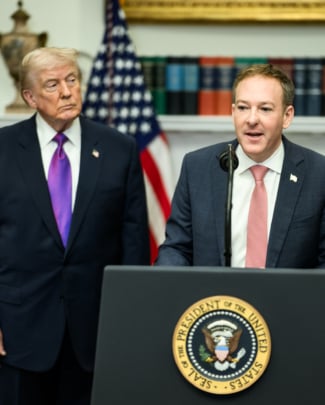CANCEL CULTURE TAKING OVER CORPORATE AMERICA
WHY WE CELEBRATE THANKSGIVING
SURVEY: WHAT ARE AMERICANS THANKFUL FOR IN 2020
GOD MIRACULOUSLY SAVED THE PILGRIMS IN 1623
EVIDENCE OF HUNTER BIDEN BUSINESS LINKED TO CHINA
CANCEL CULTURE TAKING OVER CORPORATE AMERICA
Cancel culture is a black hole that is swallowing corporate America. The zeitgeist of social awareness and virtue signaling has spread far beyond the realm of adolescent Instagram posts to the point where corporate titans now have joined in the effort to push woke capitalism. . . .
Cancel culture is a black hole that is swallowing corporate America. The zeitgeist of social awareness and virtue signaling has spread far beyond the realm of adolescent Instagram posts to the point where corporate titans now have joined in the effort to push woke capitalism.
Current social justice platforms are accelerating the growth of cancel culture and empowering consumers to hold businesses accountable for their social stances. It is not about supporting social justice—companies either are trying to get ahead or simply survive the judgment of cancel culture.
To be fair, some nonprofits make decisions based on their devotion to supporting just causes. But for larger nationwide corporations, appealing to social justice movements has little to do with idealism.
For example, Lululemon, a publicly traded women’s clothing chain that raked in $489.5 million in net direct-to-consumer revenue during a pandemic, recently had a brand ambassador hold a series of workshops titled “Unveiling Historical Erasure and Resisting Capitalism.”
Lululemon purposefully used anti-capitalist advertising to profit off the demand of young liberal women who wanted athletic leisure wear while telecommuting.
Despite pandemic-induced financial hardship, Lululemon CEO Calvin McDonald has apparently stood by past claims saying there is no reason for the brand to reduce the price of women’s tights that run over $100.
If Lululemon truly rejected the capitalist model, it would have delisted from the stock market and become a worker’s co-op. . . .
The stunt justly backfired. Many news outlets and social media commentators exposed the company’s hypocrisy. After a few days, the company separated itself from the brand ambassador and issued several apologies—a cheap concession to critics, but evidence that not even a company worth $45 billion is insulated from the growing power of cancel culture. . . .
One company that buckled under cancel culture pressure was grunge retailer Dolls Kill. After one of its stores was looted in the May riots, business founder Shoddy Lynn asked the police to gather in front of another store location in Los Angeles. Once police took position in front of the store, Lynn snapped a picture and made an Instagram post admiring the police.
The post immediately received mass backlash from thousands of social commentators and sparked several large clothing brands to terminate their partnerships with Dolls Kill. In an attempt to atone for its sin, the company took down the original Instagram post, issued multiple apologies, and pledged to spend more than $1 million to buy exclusively from black-owned vendors.
But the criticism continued until Dolls Kill began affirming Black Lives Matter, despite having a history of cutting connections with influencers who affirmed the movement. The company did not have a spontaneous desire to rebrand its core values—it converted out of self-preservation. . . .
On its surface, the rise of woke capitalism could be considered positive. With increased cohesiveness from consumers, big businesses will get less opportunity to price gouge or furtively ride woke trends without suffering a severe backlash.
But the threat of mob tyranny and vicious attacks against businesses is itself troubling.
Dolls Kill does have a history of offensive apparel that warrants criticism, but many businesses are being unjustly attacked for attempting to remain neutral. Woke capitalism is becoming less of a choice for businesses and more of a black hole no one can escape.
Consumers should hold the businesses they patronize accountable, and certainly have gained new powers and tools for doing so. As individual consumers feel an increased amount of power, they also should feel an increased responsibility to make sure their judgments are fair.
(Excerpt from The Daily Signal. Article by Tanner Aliff. Photo Credit: Unsplash.)
Share your comments on cancel culture and its influence in corporate America. . .
Partner with Us
Intercessors for America is the trusted resource for millions of people across the United States committed to praying for our nation. If you have benefited from IFA's resources and community, please consider joining us as a monthly support partner. As a 501(c)3 organization, it's through your support that all this possible.


We use cookies to ensure that we give you the best experience on our website. If you continue to use this site we will assume that you are happy with it. Privacy Policy




Comments
The hypocritical zealots that are part t cancel culture are reminiscent of the Nazi movement in WW2. People often think the movement then only involved madman dictator Hitler’s troops but it went far beyond that. The diseased mindset spread to regular citizens who lived in a fear survivor mode and therefore, turned on others who even helped them thrive and survive.
Many within Corporate America along with many of their retailers place backbone “second” to survival or profits. It’s a crisis of integrity but they see it as something else. Unless those making the decisions regarding policy have a real and permanent change of heart, we will see more of the same.
Character, integrity, honesty and strength in many corporations and businesses is no longer at the forefront of how they do business. Instead of going to eat with cancel culture, they buckle. And we most certainly need to go to war with the hideous and ugly spirit behind cancel culture.
Correction – It says going to “Eat” with cancel culture IT SHOULD HAVE SAID going to “war”. My apologies.
I encourage folks to revisit this article about praying during the turmoil that occurs as the enemy loses power. As the enemy is defeated, he becomes more desperate and fights with a frenzy. This is expected, and this article helps focus our prayers during this time. https://staging.ifapray.org/blog/?single=52258